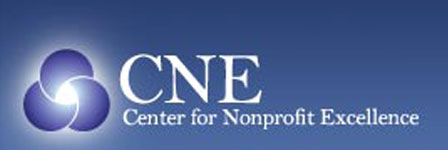
NORD Press Release
Keeping you informed about rare diseases and orphan products National Organization for Rare Disorders February 2009
Millions Around World To Observe Rare Disease Day
FOR IMMEDIATE RELEASE
February 12, 2009
(203) 744-0100 (office) (203) 942-6443 (cell) (Danbury, CT)
-----
The last day of February has been designated as worldwide “Rare Disease Day” to call attention to the public health issues associated with rare diseases, which affect nearly 30 million Americans and countless others around the world.
“People with rare diseases remain a medically underserved population in every country,” said Peter L. Saltonstall, president of the National Organization for Rare Disorders (NORD), which is sponsoring Rare Disease Day in the U.S. “This day is intended to bring together the patients and families with rare diseases to discuss the need for greater awareness, more research, and better access to diagnosis and treatment.”
More than 200 organizations, institutions and companies have signed on as “Rare Disease Day Partners” in a U.S. coalition supporting the special observance. The coalition, being coordinated by NORD, includes patient organizations, professional societies, government agencies, medical researchers, and pharmaceutical and biotechnology companies.
Rare Disease Day activities in the U.S. will include a nationwide network of online videos, patient stories and blogs; newspaper, radio, and television reports; state and municipal proclamations; a Rare Disease Hall of Fame for researchers; and other activities designed to raise awareness of what it means to have a rare disease.
A rare disease is one that affects fewer than 200,000 Americans. According to the National Institutes of Health (NIH), there are nearly 7,000 such diseases affecting nearly 30 million Americans.
“People with rare diseases often face challenges that occur less frequently with more common diseases,” Saltonstall said. “These include delay in getting an accurate diagnosis, few treatment options, and difficulty finding medical experts. Many rare diseases have no approved treatment, and insurance may not cover treatments that aren’t approved. Medical and social services may be denied because those making the decisions are not familiar with the diseases. Also, treatments for rare diseases tend to be more expensive than treatments for more common diseases.”
In 1983, the Orphan Drug Act was passed by Congress to create financial incentives for companies to develop treatments for rare diseases. Since then, nearly 330 “orphan” (for rare diseases) drugs and biologics have been approved by the U.S. Food and Drug Administration (FDA). FDA estimates that from 11 to 14 million Americans benefit from these products. However, that still leaves more than 15 million Americans with diseases for which there is no approved treatment.
Rare Disease Day also will highlight the unique partnership that exists among the patient community, government entities such as the NIH Office of Rare Diseases and FDA Office of Orphan Products Development, medical professionals, researchers, and companies developing orphan products.
Although this is the first Rare Disease Day observance in the U.S., it is the second globally. The concept was launched in Europe last year by the European Rare Disease Organization, EURORDIS, a sister organization to NORD. This year, Rare Disease Day also is being observed in other parts of the world, including Canada, Australia, and China.
The plan is to have a global Rare Disease Day on the last day of February each year. NORD, a federation of individuals and patient organizations, was established in 1983 by the patient leaders who worked to get the Orphan Drug Act passed. It provides advocacy in Washington, DC, on behalf of the rare disease community; research grants and fellowships; educational services for patients, the public, and medical professionals; and patient assistance programs.
* * *











